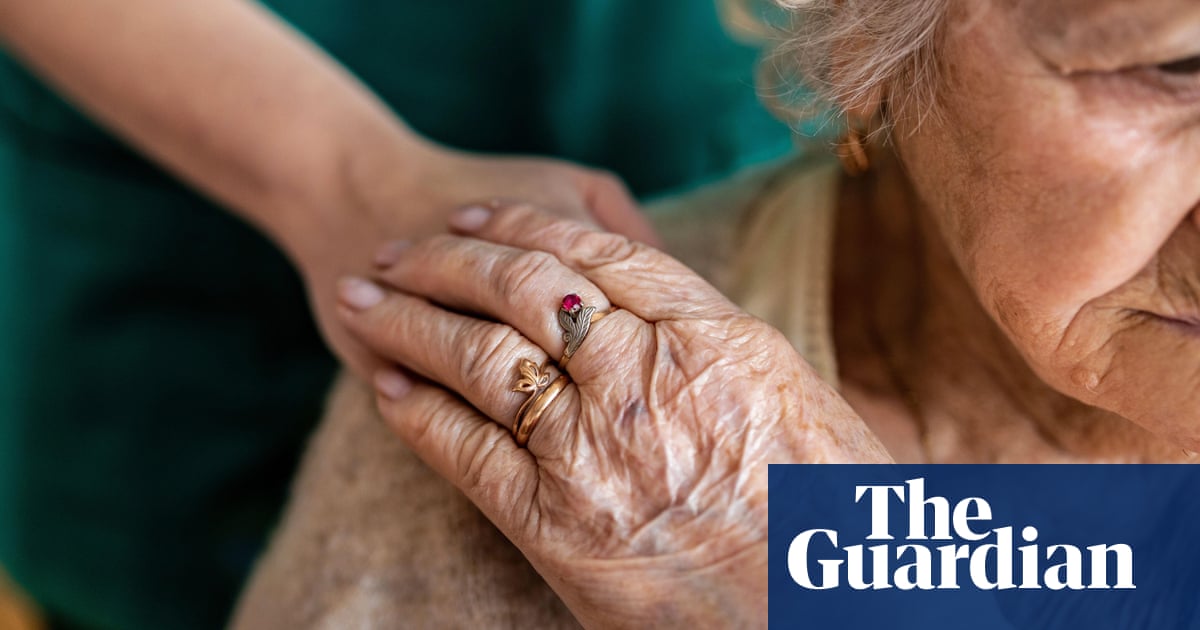
I found Fanny Johnstone’s article interesting in that it highlighted the hope, as opposed to the so-often associated despair, in caring for someone with dementia (‘I wouldn’t have missed it for the world’: 10 things I learned when my father had dementia, 8 January). However, I found the circumstances to be somewhat exceptional.
For most people, the upheaval caused by caring for someone with dementia can be extremely testing, time-consuming and highly stressful. I looked after my own wife, who was diagnosed with dementia when she was only 56 years old, for eight years prior to her admission into a nursing home. During that time, I often felt very isolated, lonely, emotionally and physically drained and, at times, desperate. The whole experience was ultimately life-changing.
Despite all the information and advice offered by various national charities and the NHS, you are very much left to your own devices. I have a filing cabinet full of pamphlets and leaflets, many of which remain unread. Family members and friends were not always available, while local care agencies can be expensive and do not always offer the consistency and quality of care required. Opportunities for necessary respite are hard to come by. Regrettably, the UK care sector is fundamentally broken. It is underresourced and incapable of delivering the support required.
Notwithstanding the challenges faced, caring for someone with dementia can, as the article highlights, be rewarding. During the eight years that I cared for my wife, I found new ways to engage and interact with her. I developed new skills including sewing, patchwork and quilting. Also, I learned to play the guitar so that we could sing together daily. While our lives were turned upside down, we still managed to have some wonderful moments of joy and laughter.
Barry Coleman
Tamworth, Staffordshire
I loved the article about caring for a father with dementia and agree with everything the writer says. I’m a carer for my son, who has a severe disability and, like the writer, I wouldn’t have missed this for the world for very many surprising reasons. However, her experience lasted 18 months, while mine has lasted 30 years.
If only social services could have an ounce of empathy and understanding – they have been our worst enemy, and simply provide extremely conditional funding. I am not considered to be the best judge of my son’s needs and, like other parents in my situation, I have to fight all the way. There is very little suitable respite available and try-outs of care homes have been nightmarish. Nothing is properly run or funded, and he is safest at home with me and a small team of carefully chosen carers who often feel like family. But I am nearly 70 and, like many others I know, I worry. This is the state of things for long-term unpaid carers and their dependents in this country.
Name and address supplied
During my mother’s period of dementia and my father’s failing health, I took a decision early on to record my conversations with them. This included them just chatting away about their lives, aspirations and what was troubling them that day. Since they have both passed away I find that I can recall what they looked like, but not how they sounded. To this day I value hearing their voices; the sound of my mother singing Limerick You’re a Lady is a heartwarming evocation of two wonderful parents.
Rory Murphy
London












